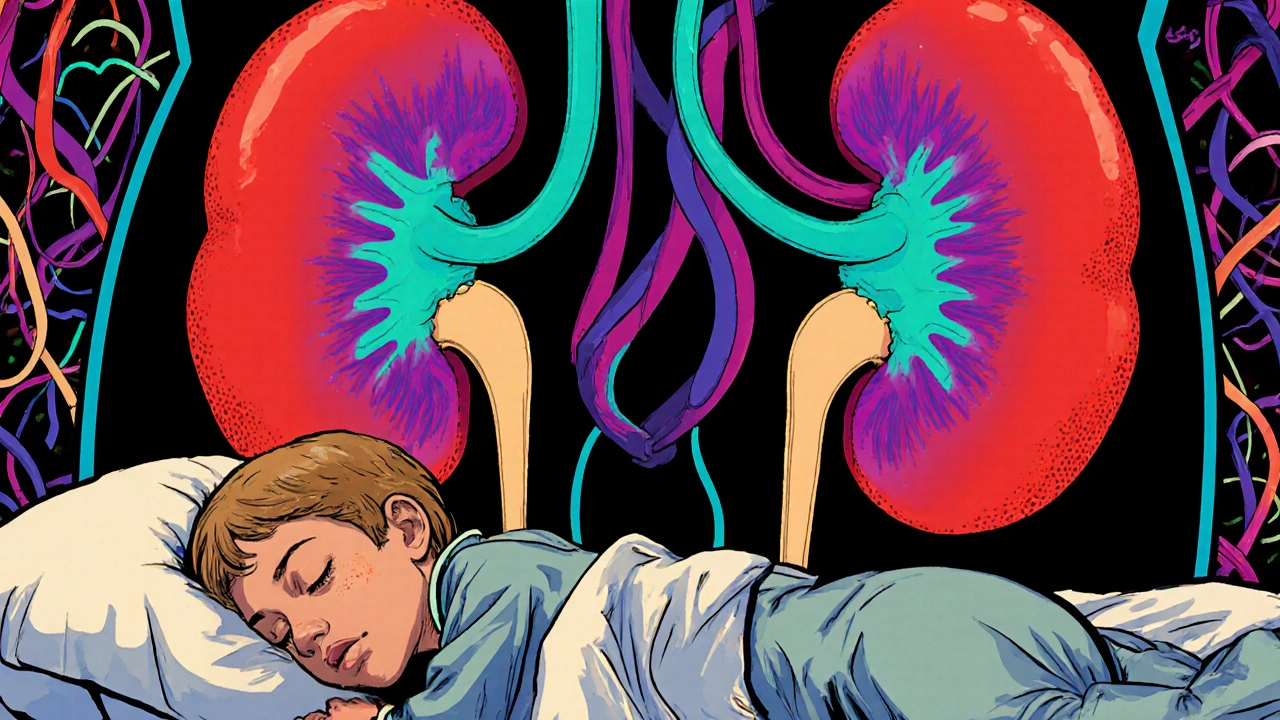How Kidneys Influence Bed-Wetting: Essential Facts
Learn how kidneys affect night‑time bed‑wetting, the hormones, conditions and practical steps to manage it.
When someone wets the bed at night, it’s not laziness or a phase—it’s nocturnal enuresis, a medical condition where involuntary urination happens during sleep, typically after age 5. Also known as bedwetting, it’s more common than most people admit, and it doesn’t discriminate by age. Kids outgrow it, sure—but many adults still struggle with it too, and they often feel alone. The truth? It’s not rare. About 1 in 10 kids aged 6 still have it, and up to 2% of adults do too. It’s not a behavior problem. It’s a mix of biology, sleep patterns, and bladder control that hasn’t synced up yet.
This condition often links to other things you might not expect. For example, bladder control, the ability to hold urine until it’s convenient to release, can be affected by deep sleep, small bladder capacity, or even genetics. If a parent had it, the child is more likely to. Hormones like ADH, which tells your body to make less urine at night, can also be underproduced. And let’s not forget constipation—it’s a silent player. A full bowel presses on the bladder, making it harder to hold on. Then there’s pediatric enuresis, bedwetting in children under 7, often tied to developmental delays in brain-bladder communication. But it’s not just kids. adult bedwetting, new-onset nighttime incontinence after years of dry nights can signal diabetes, sleep apnea, or even a urinary tract infection.
What helps? Not just waking them up every two hours. Real solutions include behavioral tools like bedwetting alarms, which train the brain to wake up when the bladder is full. Medications like desmopressin can reduce nighttime urine production. For some, pelvic floor exercises make a difference. And if anxiety or stress is part of the picture, addressing that matters too. It’s not one-size-fits-all. What works for a 7-year-old might not help a 40-year-old who just started having accidents after a major life change.
The posts below don’t just list drugs or quick fixes. They give you real comparisons—like how certain bladder antispasmodics like Urispas work, or how allergy triggers might worsen nighttime symptoms. You’ll find practical advice on managing related conditions, understanding medication options, and spotting when it’s time to see a doctor. No fluff. No shame. Just clear, honest info on what’s actually helping people with this issue.

Learn how kidneys affect night‑time bed‑wetting, the hormones, conditions and practical steps to manage it.